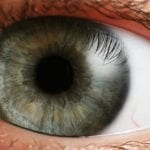A team of researchers at the Pohang University of Science and Technology (POSTECH) in South Korea has developed smart contact lenses for the diagnosis and treatment of diabetes.

According to the research team, the wirelessly powered lenses can diagnose, monitor, and administer medicine that treats diabetic retinopathy, a condition that is caused by damage to blood vessels in the light-sensitive tissue in the back of the eye.
The lenses — which are made of biocompatible polymers — use tiny biometric sensors embedded within them to measure the glucose levels in wearers’ tears in real-time, detecting whether insulin is needed and administering it accordingly from drugs encased within the lenses themselves.
Though the market for health-focused biometric technology is growing and has become a multi-billion dollar industry, much of that development has come in the form of wearables like smart watches, with earbuds and smart glasses also making up a large portion of the wearable tech market.
“Despite the full-fledged research and development of wearable devices from global companies, the commercialization of wireless-powered medical devices for diagnosis and treatment of diabetes and retinopathy is insufficient,” said research team leader professor Sei Kwang Han. “We expect that this research will greatly contribute to the advancement of related industries by being the first in developing wireless-powered smart contact lenses equipped with drug delivery system for diagnosis and treatment of diabetes, and treatment of retinopathy,” he added.
Kwang Han and his team are optimistic that the biometric real-time analysis tech and the smart lenses can be applied to the greater wearable healthcare industry relatively quickly.
The project, which is backed by the South Korean government and tech giant Samsung as well as the research team’s commercialization collaborator Interojo, is currently preparing for clinical trials of the smart lenses. Additionally, further research is being conducted to see if the “electroceutical” platform under which the lenses operate can be applied to treat other conditions such as Alzheimer’s, Parkinson’s and mental illnesses using electrical stimulations.
Sources: ScienceDaily, VentureBeat
–
May 4th, 2020 – by Tony Bitzionis





Follow Us